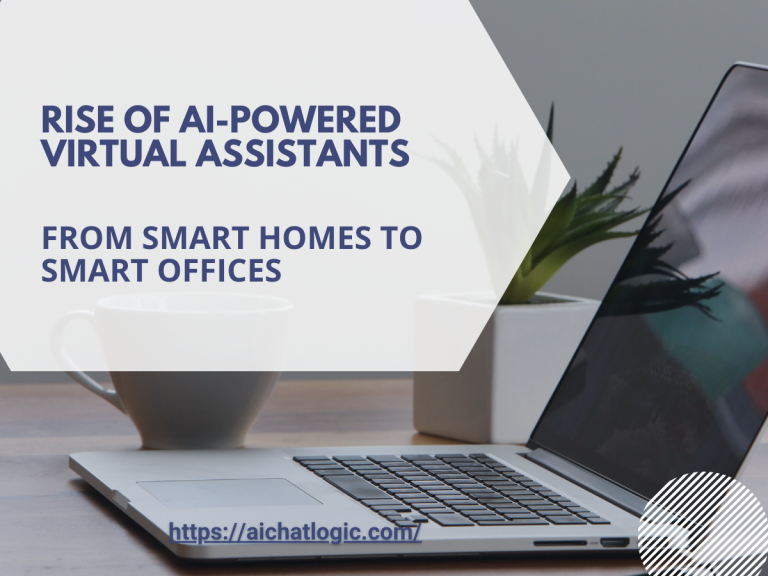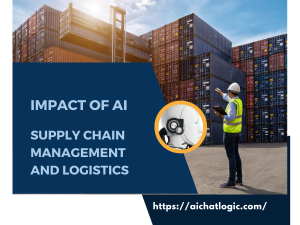Introduction
In the digital age, the rapid advancements in Artificial Intelligence (AI) have brought about numerous benefits and innovations. From personalized recommendations to virtual assistants, AI has transformed the way we interact with technology. However, this progress has also raised concerns about personal privacy. The vast amount of data collected and analyzed by AI systems has led to debates on balancing innovation and data protection. This article explores the intricate relationship between AI and personal privacy and the measures needed to maintain a delicate equilibrium.
Understanding AI and Personal Privacy
Before delving into the complexities of privacy in the AI era, it is crucial to understand the fundamentals of AI. Artificial Intelligence refers to the development of computer systems that can perform tasks that typically require human intelligence, such as speech recognition, decision-making, and problem-solving. AI achieves these capabilities by processing vast amounts of data, learning from patterns, and making predictions.
While AI enables groundbreaking advancements, it heavily relies on collecting and analyzing user data. This data may include personal information, behavioral patterns, and even sensitive details. The potential risks associated with the misuse or mishandling of this data pose significant challenges to personal privacy.
The Benefits of AI
Despite privacy concerns, AI has revolutionized various sectors and improved the lives of individuals worldwide. Some of the notable benefits of AI include:
1. Enhanced Personalization
AI algorithms analyze user data to deliver personalized experiences, such as tailored product recommendations, content suggestions, and targeted advertisements. This balancing act of personalization enhances user satisfaction and streamlines decision-making processes.
2. Improved Efficiency and Productivity
AI-powered automation and machine learning algorithms optimize workflows and processes, reducing manual effort and increasing productivity. From manufacturing to customer service, AI-driven solutions can handle repetitive tasks, freeing up human resources for more complex and creative endeavors.
3. Advanced Healthcare Solutions
AI has the potential to transform healthcare by enabling early detection of diseases, assisting in diagnosis, and improving treatment plans. Machine learning algorithms can analyze medical records and genetic data to identify patterns that may lead to personalized and more effective treatment strategies.
4. Smarter Cities and Transportation
AI applications are shaping smart cities and revolutionizing transportation systems. Intelligent traffic management, predictive maintenance of infrastructure, and energy optimization are just a few examples of how AI is enhancing the efficiency and sustainability of urban environments.
The Challenges to Personal Privacy
As AI continues to evolve, the challenges to personal privacy become increasingly prominent. Here are some of the key concerns:
1. Data Breaches and Security Risks
The collection and storage of vast amounts of personal data increase the risk of data breaches and unauthorized access. Inadequate security measures can expose sensitive information, leading to identity theft, financial fraud, or other malicious activities.
2. Surveillance and Tracking
AI-driven surveillance technologies, such as facial recognition and behavioral analysis, raise concerns about privacy invasion and potential misuse. The constant monitoring of individuals’ activities without their explicit consent erodes personal freedoms and autonomy.
3. Biased Algorithms
The algorithms used in AI systems are trained on historical data, which can introduce biases and perpetuate discrimination. Biased AI systems may lead to unfair decision-making, such as biased hiring processes or discriminatory loan approvals, amplifying societal inequalities.
4. Lack of Transparency and Explainability
Complex AI algorithms often operate as “black boxes,” making it challenging to understand how they arrive at their decisions. This lack of transparency hampers accountability and poses difficulties in ensuring that AI systems adhere to ethical and legal standards.
Balancing Innovation and Data Protection
Achieving a balancing between innovation and data protection is crucial for the sustainable development of AI. Here are some strategies to strike that balancing:
1. Privacy by Design
Integrating privacy considerations into the design and development of AI systems from the outset helps mitigate potential risks. Implementing privacy-preserving techniques, such as anonymization and encryption, ensures that personal data is protected throughout its lifecycle.
2. User Consent and Control
Empowering individuals with control over their data is essential. Clear and transparent consent mechanisms should be in place, allowing users to choose how their data is collected, stored, and utilized. Providing options for data deletion and opting out of certain data practices gives users more agency over their personal information.
3. Robust Security Measures
Implementing robust security measures is vital to safeguard personal data from breaches and unauthorized access. Encryption, multi-factor authentication, and regular security audits help mitigate security risks and ensure data integrity.
4. Regular Auditing and Accountability
Conducting regular audits of AI systems and data practices promotes accountability and identifies potential privacy vulnerabilities. Implementing internal and external auditing mechanisms helps organizations adhere to ethical standards and regulatory requirements.
5. Privacy Education and Awareness
Raising awareness about personal privacy and AI-related risks is crucial for individuals and organizations. Educating users about data protection practices and informing them about their rights and options empowers them to make informed decisions regarding their personal information.
The Role of Legislation and Regulation
To address the challenges posed by AI and personal privacy comprehensively, legislation and regulation play a vital role. Governments and regulatory bodies need to:
- Enact laws and regulations that protect individuals’ privacy rights in the context of AI.
- Establish clear guidelines and standards for the responsible collection, processing, and use of personal data in AI systems.
- Foster collaboration between industry stakeholders, policymakers, and privacy advocates to shape effective regulations.
- Continuously adapt and update regulations to keep pace with the evolving landscape of AI technology.
Ethical Considerations in AI Development
As AI becomes more prevalent in society, ethical considerations become paramount. Developers and organizations working with AI must:
- Prioritize fairness, transparency, and accountability in the design and deployment of AI systems.
- Mitigate bias in AI algorithms through rigorous testing, monitoring, and addressing biases in training data.
- Engage in interdisciplinary collaborations involving ethicists, social scientists, and domain experts to ensure ethical decision-making.
- Regularly assess and reassess the societal impact of AI systems to proactively identify and address potential ethical dilemmas.
The Future of AI and Personal Privacy
The future of AI and personal privacy depends on our ability to navigate the challenges effectively. Continued advancements in privacy-enhancing technologies, such as federated learning and differential privacy, can help preserve privacy while benefiting from AI innovation. Striking the right balancing requires ongoing collaboration between stakeholders, including industry, policymakers, and civil society, to develop ethical frameworks and ensure robust data protection measures.
Conclusion
The rapid rise of AI brings unprecedented opportunities and challenges for personal privacy. While AI fuels innovation and transforms various sectors, it must be accompanied by robust data protection measures. Striking the delicate balancing between innovation and data protection requires proactive efforts from all stakeholders involved. By implementing privacy by design, empowering users, and enacting effective legislation, we can foster an AI-driven future that respects personal privacy and upholds ethical standards.
FAQs
Q1: How does AI impact personal privacy? AI impacts personal privacy through the collection, analysis, and utilization of vast amounts of user data. It raises concerns about data breaches, surveillance, and biased algorithms, necessitating measures to protect personal information.
Q2: What are some strategies for protecting personal privacy in the AI era? Strategies for protecting personal privacy include privacy by design, user consent and control, robust security measures, regular auditing, and privacy education and awareness.
Q3: How can legislation and regulation address the challenges of AI and personal privacy? Legislation and regulation can establish clear guidelines for data protection in AI systems, promote accountability, and foster collaboration between stakeholders to shape effective regulations.
Q4: What are some ethical considerations in AI development? Ethical considerations in AI development include fairness, transparency, bias mitigation, interdisciplinary collaboration, and continuous assessment of societal impact.
Q5: What does the future hold for AI and personal privacy? The future of AI and personal privacy depends on effective collaboration, advancements in privacy-enhancing technologies, and the development of ethical frameworks to ensure data protection while benefiting from AI innovation.












+ There are no comments
Add yours